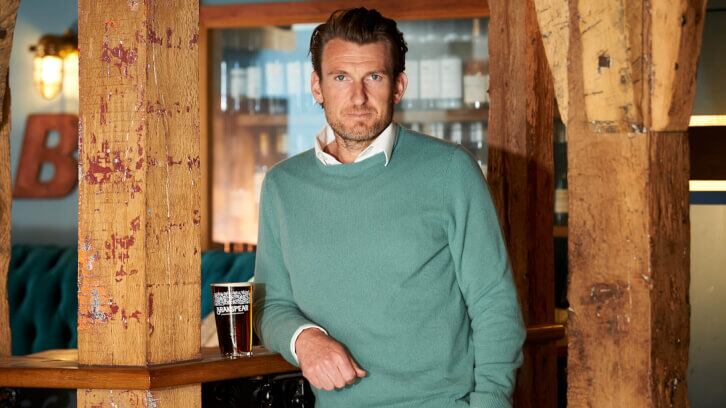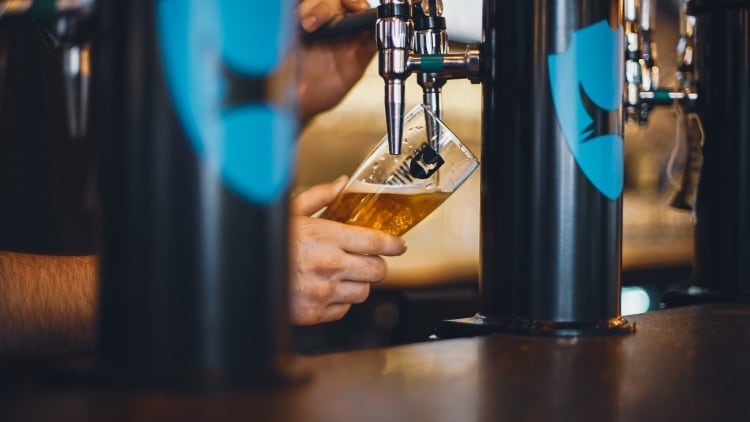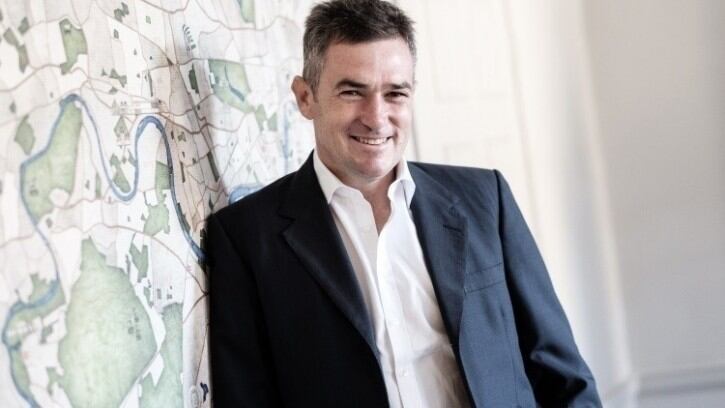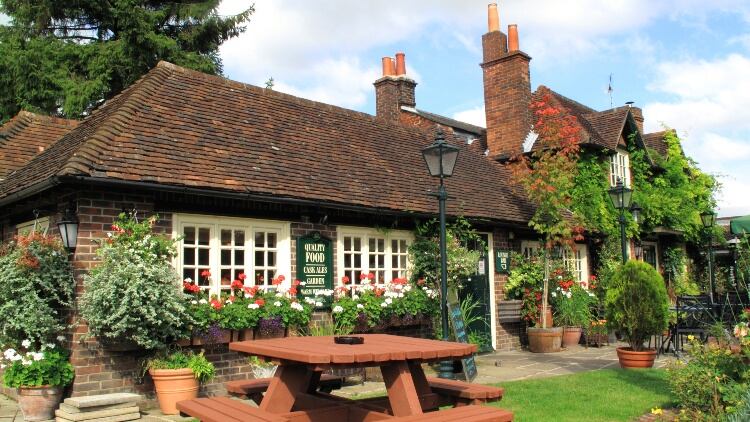The chief executive of the Oxford-based pub company comes across as a very down-to-earth chap despite knowing so many people rely on his leadership skills for their livelihoods.
The 43-year-old tells The Morning Advertiser: “Regrets aren’t something I particularly believe in or dwell on. As a CEO of a business you have to make a lot of decisions and you make them with the best information you have available to you at the time. Sadly, you’re not always going to make the right decision and that’s something we have to live with.
“But, at the same time, you learn from those as long as you’re not making the same mistake again. Of course, there are things I would do differently but, in each case, you make a decision you think is best. As a leader, you also have to stand up and say ‘no, that decision was wrong – and this is why and let’s not do that again’.”
Brakspear operates about 125 pubs with nine (almost 10) in its rebranded managed division that is under the Honeycomb Houses moniker.
They stretch from Gloucestershire to Kent and from as far north as Stratford-upon-Avon down to Eastbourne on the south coast, and offer great food, drinks and accommodation.
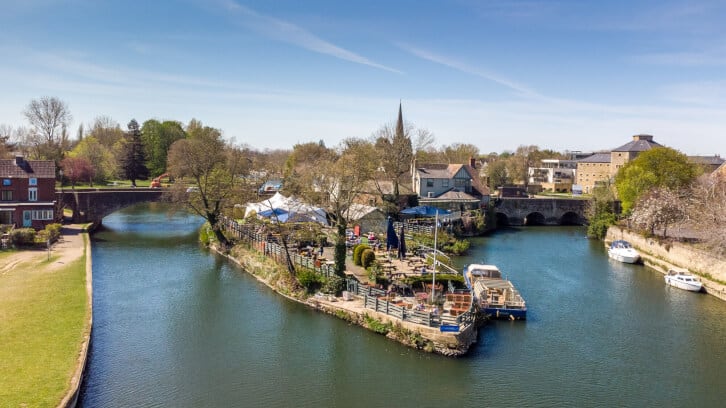
Looking back to Davies’s past, he went to university in Edinburgh and completed an MA in business before immediately joining Geronimo Inns, run by Rupert Cleveley and Ed Turner.
“I used to work for them during my university holidays and then joined them full time and did about two-and-a-half years with them,” Davies reveals. “I started doing some bar work and then worked up to being a general manager for them, which was great, there was huge progression there. And I helped open the Tin Goose at Heathrow Terminal One, which was Geronimo’s first foray into airports.”
He then joined Fuller’s as a BDM “under the watchful eye of Mike Clist, who was fantastic”. A similar time period of two-and-a-half years passed before he left for Brakspear in about 2007.
Unfortunately, Davies suffered a major blood clot and was “out of action” for about a year but returned to work in about 2009.
“It put me on my back for about a year in total with three months in hospital,” he laments. “I’d left Fuller’s and just joined Brakspear in the September and then it was in December that I got [the blood clot]. It wasn’t a pleasant period.
“It was a pretty grim time but I’m delighted to say I’m back up and running, pretty much, at full strength now.”
He joined Brakspear as commercial director and took over as chief executive in 2010 at the age of 30.
“We weren’t sure whether we’d still had a have a business”
Shaken me into action
There’s been highlights, of course, and Davies claims the professional highlight of his career was winning the Best Tenanted pub company at The Publican Awards in 2014.
“Having taken over in 2010, the business needed a lot of work and it was our goal to win that award in 2014,” he says. “To win it was a huge. It was a huge accolade for the team and not a personal one – it was for everyone involved who contributed towards it so that was great and we haven’t entered since so it’s probably about time we did because it was almost 10 years ago.
“It’s not that we’ve been doing nothing since but we just haven’t really been entering awards. It was a great time for the team and it has shaken me into action that we do need to enter some more awards and it’s great for team morale.”
With highs naturally come lows and Davies is convinced Covid must be the nadir of his career along with many other business leaders.
He says: “I remember sitting in the office and we all watched it live on TV as Boris stood up and said, right, we’re now telling you all hospitality business have to close at midnight tonight.
“Everyone in the office was looking at me saying ‘What does this mean?’ I’m hearing it live as they were and I’m saying ‘Guys, I just don’t know’.
“It was a hell of a low point.
“We weren’t sure whether we’d still had a have a business, whether we’re still going to be able to employ anybody and although the support that was put in subsequently was fantastic and I’m delighted we’ve kept hold of hold of everyone and we survived it, but that moment and the month that followed were pretty depressing and worrying times.”
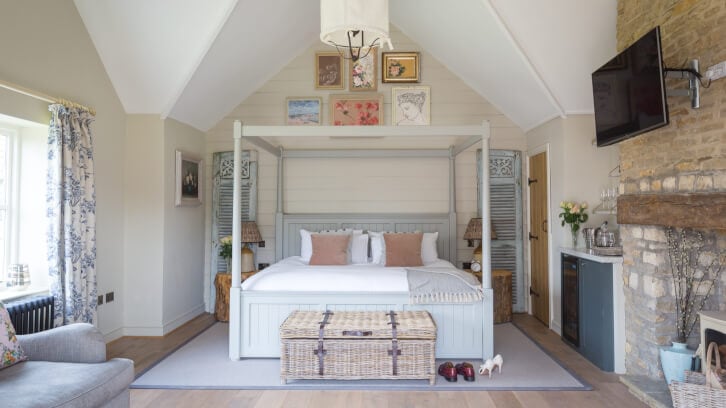
He recalls there were tenants, employees and everyone in-between calling to ask what was going on and he was having to buy time to see what would happen.
“The [financial] support did come but there was a period of time where nothing was clear so that was a very tough time for a leader in any business.”
Gone are the days when a man would go to work and ignore the all-important family matters at home and Davies says balancing a family and work is not easy.
“We’re a family business so ‘family’ is incredibly important to us personally and for our teams,” he states. “We do try to prioritise family but it isn’t easy. More and more is expected of fathers these days in the home than perhaps it has been in the past I think.
“We’re expected to be present as much as you possibly can be so trying to balance that is not easy but it’s important.
“As an example, I’m picking up my daughter Bella for the first time from nursery, which I’m very excited to be doing but I’ve never done it before. It’s about trying to do things where you can be present as much as you possibly can but not losing focus on the business. I’m certainly trying.”
Bigger and better
Pressure is to be expected as a business leader and Davies admits some of it is self-inflicted because he puts pressure on himself to succeed.
Davies says: “I want to lead a successful business and want to be successful and that pressure comes from being a generational family business as well.”
Being at the helm of a business that’s been going since 1779 and his family’s business has been going since 1875, Davies – as the fifth generation of his family – says his drive is to pass it on to the next generation as a bigger and better business than when he inherited it.
“You are responsible for a lot of livelihoods and that’s your teams in the office, teams in the pubs, you’ve got a number of great business partners out there running our tenanted and leased pubs who don’t rely on us but rely on us to be fair and equitable to give them a good deal,” he says.
“While on the flipside, I’ve got my family and I’ve got shareholders who also rely on us for the business to be successful so, yes, there are a lot of people who look to me for the business to succeed and that’s pressure for sure.”
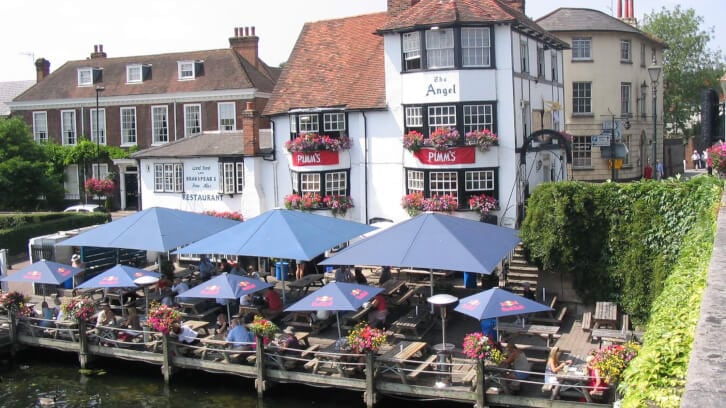
However, he knew what he was getting into and says nothing has really surprised him since becoming a CEO. It is high-pressure but that is to be expected he states.
“I enjoy the role, of course I do. There’s nothing I wasn’t anticipating. I suppose the only thing it’s not necessarily about being a CEO, it’s about being a leader in a business. Modern day leadership has clearly changed. There’s an expectation of not just being a boss. It’s about being a sounding board and a counsellor.
“The breadth you need in terms of your emotional intelligence is definitely being tested. There’s all the mental health issues that we are witnessing in the workplace and things like this were not a factor even 10 years ago.”
As stated at the start of this interview, Davies is not an old-school boss who spits fire at staff. He sounds calm and collected but fun – and he does not overwork if he can avoid it.
“I don’t think I overwork,” he argues. “I’m a big delegator and it’s something I am passionate about. I like letting people get on with it.
“I empower people and let them make decisions on what they want they feel is the right thing to do. As a leader, I try to set the framework and then I’m managing them but I don’t get involved in in too much detail.
“I let them make the decisions. They understand the framework within which they should be working and then I let them make the decisions. I’m not a believer in working, say, 80 hours a week. I think those days are gone.”
“The needs and wants of people are very different”
And starting from scratch is something that not even possible for such a long-running business but is there anything that could have been done differently?
“I suppose the only thing is we’re a pub business and, given the changing face of hospitality, we’ve got a lot of pubs that are very well suited for what modern hospitality venues need to be,” Davies begins. “And we’ve got a lot of pubs that aren’t. So if I was starting again, one would invest more in pubs that are fit for today and less that are perhaps more suited to yesteryear.
“It’s just the changing face of hospitality. The needs and wants of people are very different. We know you need to have great food so you need kitchens, you need sizeable restaurants, people want to have private parties and events, people want to be able to stay the night, they want to have a wedding so it’s all those sorts of things that make it a much more of a rounded offer.
“But a lot of our pubs clearly don’t have the size or scale to be able to do that and where they’re rural pubs, they were built for farm workers 100 years ago so those pubs are much more difficult to operate.”
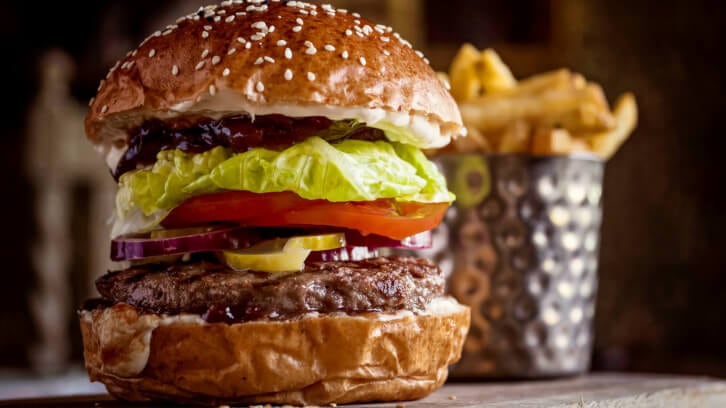
It's something very special
Within the Brakspear business, Davies’s biggest achievement is the launch of its Honeycomb Houses venture.
Brakspear, which traditionally operated a tenanted and leased pub model, went into managed houses in 2012 and became Honeycomb Houses post-Covid with nine sites along with a 10th in Ghyll Manor, in Rusper, West Sussex, in the pipeline.
Davies states: “I’m hugely proud of what we’ve created and it’s something very special. I’m looking forward to nurturing it and seeing it grow in the future.
“I didn’t like the concept of ‘Brakspear managed’ so Honeycomb Houses, as a brand, launched after Covid.
“We had our first Honeycomb Houses all-team party recently and it was brilliant. We put up a big marquee on the side of the Thames down in Henley, we shut down all the pubs, bussed everyone down there and then we had games likes bungee running, a rodeo bull, some awesome games of tug of war.
“We also had a big bar and great food. It was really fun. Everyone had a really good day and everyone left on a steam-powered boat going back into Henley. It was a good old knees-up and I think everyone really enjoyed it so that was great.”
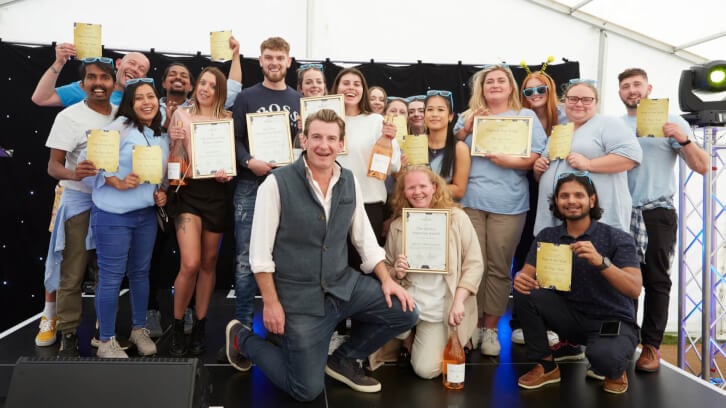
Bringing youth into hospitality has been a natural move for a long time but it has also had connotations with not being a job with genuine prospects as a member of staff ages somewhat.
“Hospitality provides a great environment for fast progression,” argues Davies. “If you choose not to go to university, which isn’t for everybody – and there are well-publicised issues with university – there aren’t many businesses where you can double your salary within the space of about three years.
“If you start as a waiter or bar staff or front of house, you could quickly progress to a supervisor, assistant manager and then general manager and you can literally double your salary in three to four years going right the way through our career programmes.”
“People skills are so important and you’re never going to learn them anywhere better than in hospitality”
He continues: “There’s a huge progression there to be had. It’s a people business and it’s about understanding people and working out how they tick. If you have people on board with these skills they get on with people and that is a massively transferable skill. People skills are so important and you’re never going to learn them anywhere better than in hospitality.
“If you can get that skill set and then either stay in hospitality, which is a fantastic industry or if you decide to move on to something else then take those skills and use them somewhere else. They are the best skills you can acquire is my belief.
“People who have great people skills often don’t see it as a skill. My wife says it all the time. She says I’m not good at this or that but I say you are the most fantastic person with people. People warm to people like you and you can really engage with people – and that is a massive skill.
“People can develop and hone those skills. The difference between a good leader and a great leader is all about their people skills and how they can get people to follow them and, ultimately, get them to do what they what they want them to do.”
Sounding board
Davies cites his wife Alexa as someone who helps him improve his leadership skills among others.
He will speak to her about pending decisions and uses her as a sounding board. “She gives me a different perspective to consider and it’s good to be able to balance those off against views of my own,” he says.
He also does not find being leader of Brakspear a lonely position to be in.
“I’ve got a great CFO in David Nathan who I work incredibly closely with. He’s a hugely important part of our business. I’ve got a supportive board that is chaired by my father (Mickey) and I’m extremely close to him as well.”
He also says the wider industry of hospitality is “fantastic” and it’s “packed full of brilliant people” who he is happy to discuss things with openly and, as an industry, everyone is very supportive of each other.
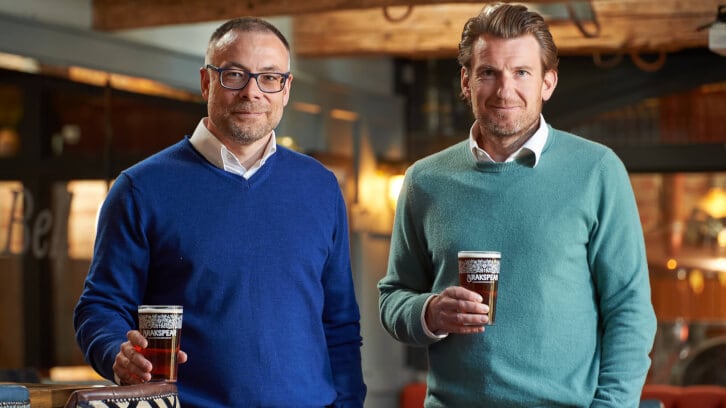
“We all want hospitality to succeed as well as our own businesses because, in many cases, they don’t overlap – whether it’s geographical or you’re operating in a different sector of the market.
“You’re talking to people about things that you’re doing but you’re not breaking any trade secrets, it’s just about talking to people who have an interest in hospitality.”
When quizzed on what three things a good leader should have, Davies confidently answers: “Courage is probably one and that’s the courage to make decisions.
“There’s nothing more frustrating than working for a leader who won’t make a decision. Everyone needs decisions to be made and although they’re not easy they need to happen.
“Procrastination on decisions is not only frustrating but can be damaging to any business. A leader needs to have the courage to make a decision and to stick with it and clearly reflect on it afterwards.
“If it’s the wrong decision, of course you need to own that and understand why that decision was made and not make that decision again but at least the courage was there because indecision is hugely damaging to any business.”
Secondly, he says giving clarity and being consistent is vital. People need to know where they stand so, as a leader, one needs to set a vision, give their values and set a direction of travel “but it needs to be clear”.
And thirdly it’s delegation.
Davies says: “A good leader needs to empower people to make their own decisions and that means your team around you grows. I’m a big delegator and you know one of our values is ‘do the right thing’ and, I think, assuming people make their decisions based on our values and they believe they’re doing the right thing then it’s never going to be the wrong decision.
“You might get the wrong result and need to review that decision but if it was made with the with the right values in mind then it’s never the wrong decision. Empowerment delegation is hugely important and allows your team around you to grow and flourish.”
“Make sure you have the right people in order to grow”
Finally, Davies explains the advice he would give to any smaller pub groups looking to expand.
“When you’re looking to grow through the tenanted and leased model or you’re looking to go down the freehold model, I think people are key to any good business,” he says.
“I suppose my advice would be to do it sustainably. Make sure you have the right people in order to grow and the right people for your next phase of growth, and make sure those right people are in the right place. If you’ve got that, you’re ready to grow.
“Hospitality businesses that grow too quickly, often find themselves in trouble so get everyone in the right place and then grow rather than trying to do so retrospectively.”
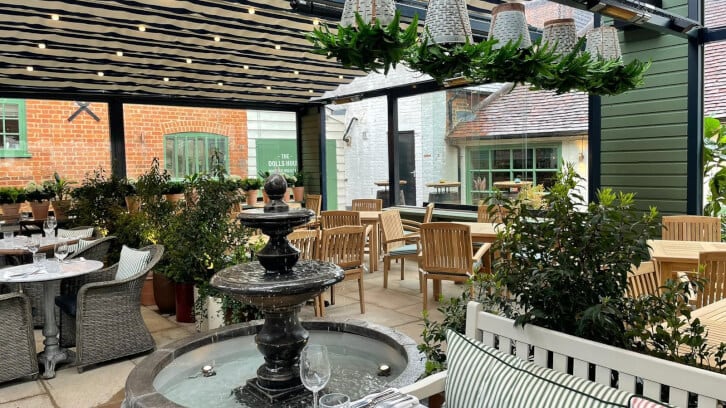
- Want to know what Tom Davies sees as a huge threat hanging over the hospitality sector? Click here to read about his thoughts on business rates, summer trade and staffing issues.

